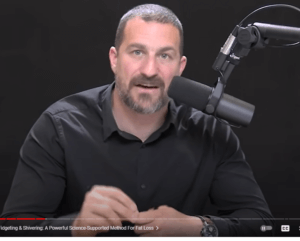
What to Eat & When to Eat for Longevity | Lifespan with Dr. David Sinclair #2
In an episode of the Lifespan Podcast, Dr. David Sinclair, a professor at Harvard Medical School and a co-director of the Center for the Biology of Aging, along with co-host Matthew LaPlante, delves into the intricate relationship between diet, fasting, and longevity. The dialogue, rich with scientific insights and personal anecdotes, offers a compelling narrative on how to enhance one’s lifespan through dietary choices. This article seeks to dissect the pivotal themes of their conversation, focusing on the scientific underpinnings of their dietary recommendations and the profound impact of fasting on our health.
The Science of Fasting and Longevity
One of the standout moments in the podcast comes when Dr. Sinclair emphasizes, “Eat less often. Those three words, eat less often”. This simple yet powerful statement encapsulates the essence of their argument for intermittent fasting. The scientific rationale behind this approach lies in the activation of sirtuins, a family of proteins that Sinclair’s research has shown to play a critical role in aging and longevity. By adopting a regimen of eating less frequently, one can induce a low-energy state in the body that stimulates these protective enzymes, thereby combating aging and promoting health.
The Optimal Diet for Slowing Aging
The podcast also ventures into the debate on what constitutes the best diet for longevity. Dr. Sinclair and LaPlante advocate for a diet that is primarily plant-based. They reference research indicating the myriad benefits of such a diet, including reduced inflammation, lower blood pressure, and a decreased risk of chronic diseases. A key takeaway from their discussion is the concept of xenohormesis, the idea that consuming plants under stress may impart health benefits to humans due to the activation of survival pathways.
Personal Insights and Anecdotes
Both Sinclair and LaPlante share their personal experiences and the dietary protocols they follow. Sinclair, for example, mentions his own practice of time-restricted eating, consuming his meals within a narrow time window each day. This anecdote not only humanizes the scientific discussion but also provides a practical framework for listeners to experiment with fasting in their own lives.
The Role of Technology in Monitoring Diet and Health
Interestingly, the episode highlights the importance of technology in optimizing one’s diet for longevity. Continuous glucose monitors, for instance, are mentioned as tools that can provide immediate feedback on how different foods affect blood sugar levels, allowing for a more tailored and effective dietary plan.
Conclusion
The Lifespan Podcast episode with Dr. David Sinclair and Matthew LaPlante offers a fascinating exploration of the nexus between diet, fasting, and longevity. By weaving together scientific evidence, personal narratives, and practical advice, they present a compelling case for rethinking our dietary habits. As we navigate the complexities of nutrition and health, their insights serve as a valuable guide for anyone looking to enhance their longevity through informed dietary choices.





